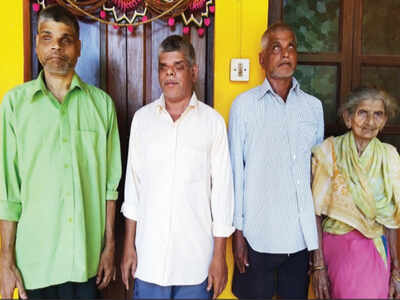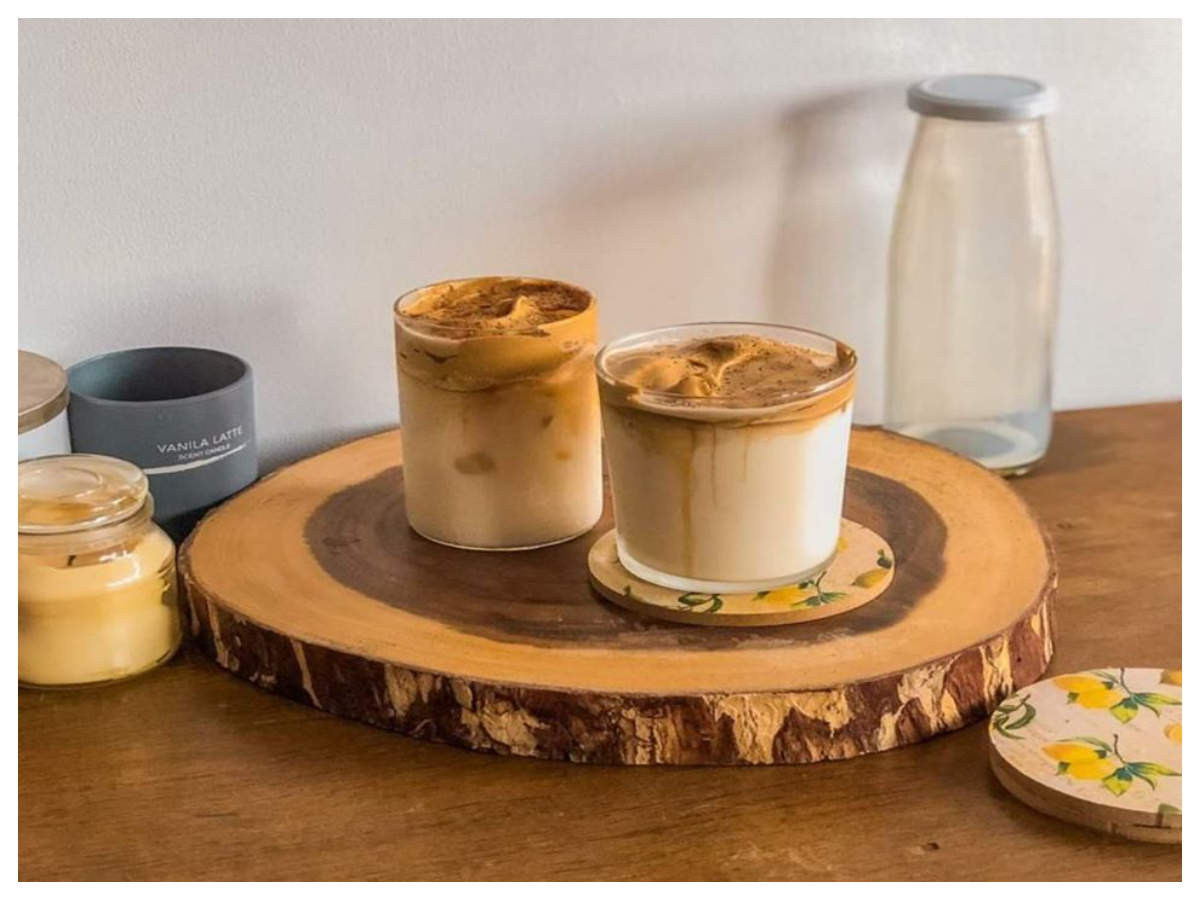
QUEPEM: There seems to be no light at the end of the tunnel for the Shetkar family from Sirvoi in Quepem taluka.
Four Shetkar siblings have been visually impaired since birth, but they made a living by putting their musical talent to good use with shows across the state. Other members of the family procured household utensils from Belagavi and sold them here to make ends meet.
The coronavirus pandemic has made life tough for everyone. For the Shetkars, it just got tougher.
“We have been blessed with an artistic talent. People have helped us, but we have never begged. Now, we face a tough challenge,” said Dattaram, 55, the second of the four siblings.
Along with Khapru (62), Namdeo (48) and their sister Sushila (50), all of them live together in Kumbharwada with their 80-year-old mother Shevanti.
Famous all over Goa as Shetkar brothers or Shetkar Bandu, and even blind brothers, there are now no shows to perform. After imposition of lockdown, their main source of income in recent months was also snuffed out.
“Our problems became worse as my wife could not procure the mud utensil supplies from Belagavi due to sealing of borders and bazaars have also been stopped,” said Dattaram.
Dattaram’s father was a potter and made household utensils of mud for a living. After his death in 1997, Shevanti took up the challenge and kept the home fires burning.
As she grew old and manufacturing pottery items at home became difficult, Dattaram’s wife, Devayani, started procuring household utensils from Belagavi and selling them at the Sunday bazaar at Quepem and zatras and festival elsewhere.
“This helped the family generate some income,” a Shetkar sibling lamented.
In difficult times, the Shetkars cannot even count upon their musical skills. Dattaram is a harmonium player, Namdeo plays the table, while Khapru and Sushila are gifted singers. They have staged numerous shows, vowing audiences with their music, providing them a repertoire of bhajans, natya sangeet and sugam sangeet. They’ve even performed in Udaipur.
Their last show together was in January 2020 when Dattaram’s 18-year-old daughter, Ankita, joined them as singer.
“Our cultural activities and stage shows took a backseat after our father’s death in 1997. We couldn’t earn much as there was nobody to take us around. Our instruments are now gathering dust,” said Namdeo.
Even if they pick up the instruments now, there may not be an audience. Nobody really knows when gatherings will be allowed, and even when that happens, finding someone to drive the Shetkars around always remains a big task.
“These are tough days. We don’t know what the future is in store for us,” said Dattaram.
The Shetkars believe their problems can be eased to a large extent if Dattaram’s elder daughter, who has just completed her graduation, finds decent employment. The other three children in the Shetkar family are still studying.
Any financial help from the government is also welcome. Initially, a monthly honorarium of Rs 1,250 from the art and culture department and Rs 1,000 from DSS provided some solace to the family. But in 2008, the government withdrew the Rs 1,250 honorarium, stating that only one person per family can avail that scheme.
The amount has now been increased after they produced documents stating that they are 100% blind. Each of them receive Rs 3,500 per month under the Dayanand Suraksha Scheme (DSS) from the government.
“I am requesting the chief minister to restart our art and culture scheme. It is difficult to run the family with what we receive at the moment,” said Dattaram.
Four Shetkar siblings have been visually impaired since birth, but they made a living by putting their musical talent to good use with shows across the state. Other members of the family procured household utensils from Belagavi and sold them here to make ends meet.
The coronavirus pandemic has made life tough for everyone. For the Shetkars, it just got tougher.
“We have been blessed with an artistic talent. People have helped us, but we have never begged. Now, we face a tough challenge,” said Dattaram, 55, the second of the four siblings.
Along with Khapru (62), Namdeo (48) and their sister Sushila (50), all of them live together in Kumbharwada with their 80-year-old mother Shevanti.
Famous all over Goa as Shetkar brothers or Shetkar Bandu, and even blind brothers, there are now no shows to perform. After imposition of lockdown, their main source of income in recent months was also snuffed out.
“Our problems became worse as my wife could not procure the mud utensil supplies from Belagavi due to sealing of borders and bazaars have also been stopped,” said Dattaram.
Dattaram’s father was a potter and made household utensils of mud for a living. After his death in 1997, Shevanti took up the challenge and kept the home fires burning.
As she grew old and manufacturing pottery items at home became difficult, Dattaram’s wife, Devayani, started procuring household utensils from Belagavi and selling them at the Sunday bazaar at Quepem and zatras and festival elsewhere.
“This helped the family generate some income,” a Shetkar sibling lamented.
In difficult times, the Shetkars cannot even count upon their musical skills. Dattaram is a harmonium player, Namdeo plays the table, while Khapru and Sushila are gifted singers. They have staged numerous shows, vowing audiences with their music, providing them a repertoire of bhajans, natya sangeet and sugam sangeet. They’ve even performed in Udaipur.
Their last show together was in January 2020 when Dattaram’s 18-year-old daughter, Ankita, joined them as singer.
“Our cultural activities and stage shows took a backseat after our father’s death in 1997. We couldn’t earn much as there was nobody to take us around. Our instruments are now gathering dust,” said Namdeo.
Even if they pick up the instruments now, there may not be an audience. Nobody really knows when gatherings will be allowed, and even when that happens, finding someone to drive the Shetkars around always remains a big task.
“These are tough days. We don’t know what the future is in store for us,” said Dattaram.
The Shetkars believe their problems can be eased to a large extent if Dattaram’s elder daughter, who has just completed her graduation, finds decent employment. The other three children in the Shetkar family are still studying.
Any financial help from the government is also welcome. Initially, a monthly honorarium of Rs 1,250 from the art and culture department and Rs 1,000 from DSS provided some solace to the family. But in 2008, the government withdrew the Rs 1,250 honorarium, stating that only one person per family can avail that scheme.
The amount has now been increased after they produced documents stating that they are 100% blind. Each of them receive Rs 3,500 per month under the Dayanand Suraksha Scheme (DSS) from the government.
“I am requesting the chief minister to restart our art and culture scheme. It is difficult to run the family with what we receive at the moment,” said Dattaram.

Coronavirus outbreak
Trending Topics
LATEST VIDEOS
City
 Delhi lockdown: People flout social distancing norms in Chandni Chowk ahead of Ramzan
Delhi lockdown: People flout social distancing norms in Chandni Chowk ahead of Ramzan  How a crocodile was rescued in Telangana
How a crocodile was rescued in Telangana  'Stay at home' message passed on by canine squad of bomb detection and disposal unit of Nagpur Police
'Stay at home' message passed on by canine squad of bomb detection and disposal unit of Nagpur Police  Covid-19 crisis: Empty wallets, stomachs and promises, workers in a fix in Chennai
Covid-19 crisis: Empty wallets, stomachs and promises, workers in a fix in Chennai
More from TOI
Navbharat Times
Featured Today in Travel
Quick Links
Kerala Coronavirus Helpline NumberHaryana Coronavirus Helpline NumberUP Coronavirus Helpline NumberBareilly NewsBhopal NewsCoronavirus in DelhiCoronavirus in HyderabadCoronavirus in IndiaCoronavirus symptomsCoronavirusRajasthan Coronavirus Helpline NumberAditya ThackerayShiv SenaFire in MumbaiAP Coronavirus Helpline NumberArvind KejriwalJammu Kashmir Coronavirus Helpline NumberSrinagar encounter
Get the app



